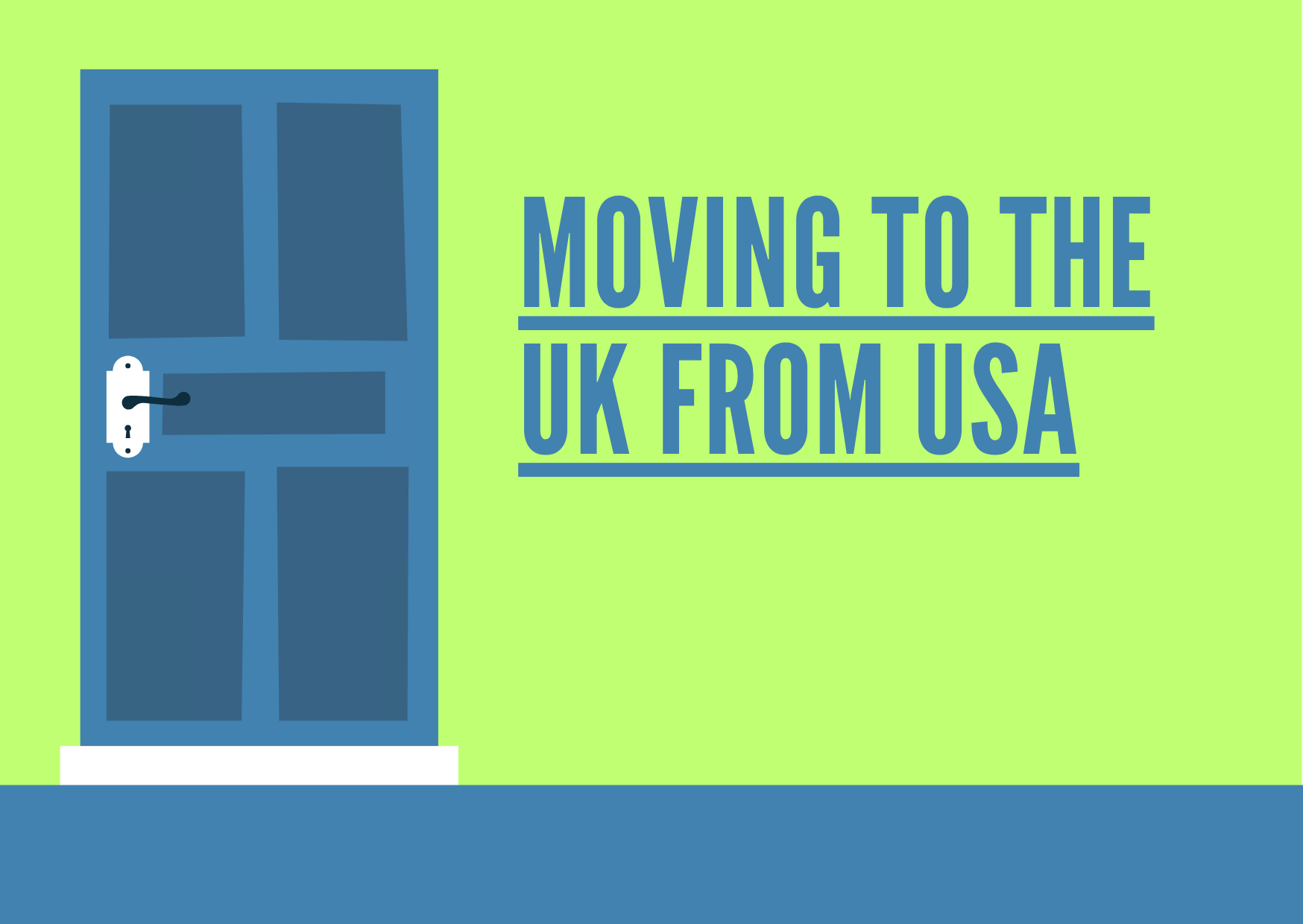Moving to the UK from USA is an exciting yet complex decision that requires thorough planning, understanding of legal requirements, cultural adaptation, and a willingness to embrace change. Whether you’re relocating for work, education, retirement, or a change of scenery, the United Kingdom offers a wealth of opportunities and a different pace of life compared to the United States. This detailed guide is designed to walk you through everything you need to know before making your move—from visa processes and housing to healthcare and cultural differences. You can also check real bag packed for travel here
If you’re asking yourself whether relocating from the US to the UK is the right move, this comprehensive resource will help you weigh the pros and cons, prepare for the transition, and set yourself up for success.

Table of Contents
- Introduction: Why Move to the UK from the United States?
- Visa Options for US Citizens Moving to the UK
- Cost of Living in the UK vs USA
- Finding a Place to Live in the UK
- Working in the UK as an American Expat
- Healthcare in the UK: What US Citizens Should Know
- Education and Schooling Options for Families
- Opening a UK Bank Account and Managing Finances
- UK Taxes and National Insurance for Americans
- Cultural Differences Between the UK and USA
- Building a Social Life as an American Expat
- Tips for Adjusting to British Weather and Lifestyle
- Bringing Pets to the UK from the US
- Driving and Transportation in the United Kingdom
- Pros and Cons of Moving to the UK from the USA
- Frequently Asked Questions About Relocating to the UK
- Conclusion: Is Moving to the UK from USA Worth It?
1. Introduction: Why Move to the UK from the United States?
Moving to the UK from USA is a choice that thousands of Americans make each year for various reasons. Whether it’s a career opportunity in London, a university placement in Edinburgh, or a desire to retire somewhere steeped in history and culture, the UK has a lot to offer. The shared language, similar legal system, and cultural ties make the transition smoother than relocating to a non-English-speaking country. Still, the move involves legal, financial, and emotional preparation.
As transatlantic relocation becomes more popular in today’s globalized world, it’s important to understand both the rewards and responsibilities that come with such a move. This guide breaks down the entire process for Americans relocating to the United Kingdom.
2. Visa Options for US Citizens Moving to the UK
Understanding your visa eligibility is one of the most crucial parts of your move. The UK government offers several visa categories for US citizens depending on your reason for relocation.
Popular UK Visas for Americans
- Skilled Worker Visa: If you have a job offer in the UK from an approved sponsor in a qualified field.
- Student Visa (Tier 4): For US citizens studying at a UK university or academic institution.
- Spouse or Partner Visa: If you’re married to or in a civil partnership with a UK citizen or permanent resident.
- Ancestry Visa: If you have a British grandparent and meet eligibility criteria.
- Global Talent Visa: For individuals with exceptional talent in fields like science, arts, or tech.
- Youth Mobility Scheme Visa (for those aged 18–30): Though currently limited, future expansion may include Americans.
Make sure to apply through the official UK government site and consider working with an immigration solicitor if your case is complex.
3. Comparing the Cost of Living in the UK and the USA
Living expenses in the UK can be both higher or lower than in the US, depending on location, lifestyle, and currency exchange rates.
Key Living Costs to Consider
- Housing: London rents are notoriously high, but rural and northern areas are far more affordable.
- Utilities: Electricity, gas, and water bills are typically included in UK housing discussions and are generally moderate.
- Transportation: Public transit is excellent in most cities. The need for a car is often less than in the US.
- Groceries and Dining Out: On average, grocery prices are comparable, though eating out can be more expensive in UK cities.
- Healthcare: Covered under the NHS, which greatly reduces out-of-pocket costs.
Overall, London and southern England are expensive, while cities like Leeds, Manchester, and Glasgow offer a more budget-friendly experience.
4. Renting or Buying a Home in the UK
How to Find Housing in the UK
Whether you’re renting a flat or buying a house, the UK housing market can feel different from what you’re used to in the States.
Popular Property Search Platforms:
- Rightmove.co.uk
- Zoopla.co.uk
- OnTheMarket.com
Renting in the UK
- You’ll typically need to pay a deposit (5–6 weeks’ rent).
- Letting agents may charge small admin fees.
- Lease terms are often 6 or 12 months minimum.
- Council tax is a local charge that renters must pay.
Buying a Home in the UK
- Foreign nationals can purchase property, but getting a mortgage as a non-resident may require a larger deposit.
- Legal assistance (called conveyancing) is necessary during the home-buying process.
5. Employment and Work Opportunities for US Citizens in the UK
UK Job Market for American Expats
Industries with high demand for skilled professionals include:
- Information Technology (IT)
- Finance and Banking
- Healthcare (NHS)
- Engineering
- Education
- Creative Arts and Media
To work legally, you must have an appropriate visa, and most employers must sponsor your work permit.
Tips for Finding a Job in the UK:
- Use UK-based job sites like Indeed.co.uk, Reed.co.uk, and LinkedIn UK.
- Customize your resume (CV) to British standards.
- Network through industry events or expat communities.
6. Healthcare in the UK for US Citizens: What to Expect from the NHS
The National Health Service (NHS) provides publicly funded healthcare to UK residents, a major difference from the US healthcare system.
Key Facts:
- NHS is mostly free at the point of use.
- You’ll pay an Immigration Health Surcharge (IHS) as part of your visa.
- Private healthcare is also available for those who want faster service.
Most US expats find the NHS affordable and comprehensive, though wait times can be longer than in the US.
7. Education in the UK for American Families
Schools in the UK
- State Schools: Free for residents and generally well-rated.
- Private Schools: Known as “independent schools,” offering diverse curriculums.
- International Schools: Great for American expat families who want a US-style education.
Universities
Top UK universities like Oxford, Cambridge, and University College London (UCL) attract American students every year. Tuition is often lower than in the US, especially for graduate degrees.
8. Setting Up UK Banking and Managing Your Finances
Opening a bank account in the UK is essential for paying rent, receiving a salary, and managing bills.
Required Documents:
- Proof of address (UK or US)
- Passport or valid ID
- Visa or residence permit
Popular UK Banks:
- Barclays
- HSBC UK
- Lloyds Bank
- NatWest
Currency Considerations
The UK uses the British Pound (GBP). Exchange rates fluctuate, so using a multi-currency account or digital bank like Wise or Revolut can help manage transfers and conversions.
9. Understanding UK Taxes and National Insurance
If you’re living and working in the UK, you’ll be subject to UK tax laws.
Income Tax in the UK
Tax bands vary by income, and deductions are automatic via the PAYE (Pay As You Earn) system.
US-UK Tax Treaty
- You may still need to file US taxes while living abroad.
- Use the Foreign Earned Income Exclusion (FEIE) or Foreign Tax Credit to avoid double taxation.
- Consider hiring a tax advisor who specializes in expat tax laws.
10. Cultural Differences Between the US and the UK
Despite speaking the same language, cultural nuances can surprise many Americans.
Differences You’ll Notice:
- British Politeness: Indirect communication, understatement, and apologies.
- Sense of Humor: More sarcastic and dry than the American style.
- Driving on the Left: Always remember this while crossing the street too!
- Tipping Culture: Less common—10% is usually fine at restaurants.
- Measurements: The UK uses a mix of metric and imperial systems.
Embracing these differences helps with social integration and making local friends.
11. Making Friends and Building a Social Life in the UK
Tips for Expats to Make Connections
- Join local interest groups or hobby clubs.
- Attend networking events or “meetups” for expats.
- Say yes to pub invites—socializing is a huge part of British culture.
- Use online platforms like Meetup, Internations, or Bumble BFF.
Making friends may take time, but once you connect, British friendships can be deep and lasting.
12. Adjusting to the British Lifestyle and Climate
What to Expect in the UK
- Weather: Mild, gray, and rainy—especially in winter. Pack waterproofs.
- Public Holidays: Fewer than in the US, but long weekends are treasured.
- Work-Life Balance: Often better in the UK, with mandated holiday leave.
- Sunday Closures: Many shops and businesses close early or remain shut.
Embracing the local lifestyle makes adjusting to your new home much easier.
13. Bringing Pets to the UK from the US
Your furry friend can move with you!
Pet Relocation Requirements:
- Microchip
- Rabies vaccination
- Tapeworm treatment (for dogs)
- Health certificate issued by an accredited vet
Use a pet relocation service to handle the paperwork and ensure a smooth journey.
14. Driving in the UK as an American
Can Americans Drive in the UK?
- Yes, with a valid US license for up to 12 months.
- After that, you’ll need to apply for a UK driving license.
- Consider practicing with a professional instructor, especially for driving on the left side.
Renting a car is easy, but public transportation is excellent in most cities.
15. Pros and Cons of Moving to the UK from the USA
Advantages:
- Access to the NHS (universal healthcare)
- Proximity to Europe for travel
- Rich history, culture, and lifestyle
- Balanced work-life culture
Disadvantages:
- High taxes and cost of living (especially in London)
- Wetter climate and shorter daylight hours in winter
- Smaller homes and limited storage space
- Complex visa system
16. FAQs About Relocating to the UK from the US
Q: Do I need a visa to live in the UK long-term?
Yes, unless you have UK or EU citizenship, a valid visa is required.
Q: Can I bring my car from the US?
You can, but it’s costly and must meet UK standards.
Q: How do I access healthcare?
By paying the IHS fee, you get full access to the NHS during your stay.
Q: How long can Americans stay in the UK without a visa?
Up to 6 months as a visitor, but no working or studying allowed.
17. Conclusion: Is Moving to the UK from USA Worth It?
In conclusion, moving to the UK from USA is a life-changing decision that brings with it a mix of excitement, challenges, and endless new experiences. The UK offers a high standard of living, rich culture, reliable public services, and the comfort of a shared language and historical ties. While the bureaucracy and adaptation period can be daunting, with proper planning, American expats can thrive and truly make a home in the United Kingdom.
If you’re ready to take the leap, this UK relocation guide for US citizens should serve as your starting point. Embrace the journey, prepare wisely, and you’ll soon be enjoying all the unique advantages of your new life across the pond.







